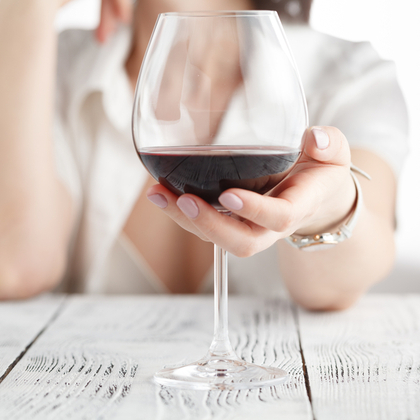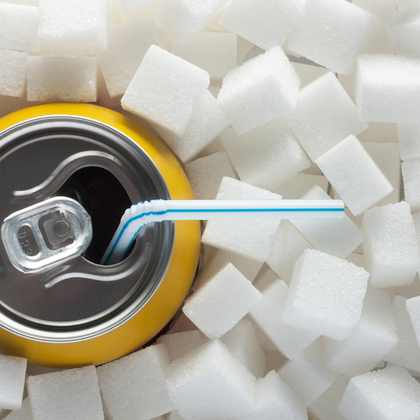
Based on all the scientific evidence, sleep is the elixir of life; it’s the Swiss army knife of health. Sleep is the single most effective thing we can do to reset our brain and body each and every day, yet many of us just aren’t getting enough of it.
In the UK, 36% of adults experience insomnia and struggle to sleep at least on a weekly basis1. Sleep is further compromised by rising cases of stress and anxiety, and depression, all of which are known to disrupt sleep quality and quantity.

Fortunately, there are many ways to optimise sleep – and one of the most effective tools is making simple dietary changes. There’s no doubt sleep and nutrition have an interesting – albeit complex – relationship: some foods keep us awake, while others make it easier to get a good night’s sleep.
With that in mind, here are some of the best food and drink to help you sleep.
What foods help you fall asleep?
Almonds
A popular health snack, almonds – and nuts, more generally – are often recommended for sleep. This is largely because almonds are a rich and natural source of melatonin, our sleep hormone, which regulates the body’s circadian rhythm or sleep-wake cycle2.
Almonds also contain magnesium, another important nutrient for sleep 3. Magnesium contributes to the normal functioning of the nervous system and normal psychological function, helping prepare the body and mind for rest, especially if you experience mental health challenges. Not surprisingly, numerous studies have found magnesium improves overall sleep function4.
To support your sleep hygiene, you could try eating a small handful of almonds in the evening. You could also supplement with magnesium to cover any dietary shortfalls.
Bananas
The advice to eat a banana before bed for sleep has been around for years – and the science seems to stand up.
Though usually considered an energy food, bananas are packed with minerals and amino acids that aid sleep. Most notably, bananas deliver an excellent spread of magnesium, potassium, carbs, and vitamin B6, all of which have been linked to more restful sleep5.
Bananas also contain the amino acid tryptophan, which is converted into serotonin, where it acts as an important chemical messenger in the brain. Serotonin is indirectly involved in melatonin production, making it a critical component of a healthy sleep-wake cycle6.
To encourage sleep, try having a banana before bed. Supplementing with 5-HTP – a naturally occurring compound that our bodies manufacture from tryptophan – or magnesium may further improve your sleep.
Kiwi fruit
According to some exciting research, kiwi fruit may be one of the best foods to help you sleep, although the exact reason why remains unclear7.
Scientists have established a link between antioxidants and sleep, with findings suggesting that low antioxidant levels may lead to poor sleep8. Experts hypothesize the antioxidants found in kiwi – specifically, vitamin C and carotenoids – may be responsible for giving the fruit its sleep-enhancing properties9.
It has also been put forward that kiwis facilitate sleep because they contain high concentrations of serotonin, which is needed for a healthy sleep-wake cycle1.
In one study, participants who ate two kiwis before bed fell asleep faster and had better sleep quality and quantity11.
With this in mind, you could experiment with having one to two medium kiwis before bed to promote sleep. You may also consider taking a vitamin C supplement.
Oily fish
Evidence suggests a regular intake of oily fish may improve sleep quality, decrease sleep latency (the length of time it takes to fall asleep), and enhance daytime performance12.
Oily fish also contains excellent levels of vitamin D3. Experts believe the combination of vitamin D3 and omega-3 fatty acids found in oily fish may contribute to better sleep quality as both are reported to increase the production of serotonin13.
To support healthy sleep, try to eat at least two to three servings of oily fish each week. A high-strength fish oil and vitamin D3 supplement – or vegan alternatives – may help cover any nutritional shortfalls, too.
To make the most of these sleep-enhancing foods, try to consume them 2-3 hours before bed. This way, you’ll avoid any uncomfortable digestive issues, such as acid reflux that may disrupt sleep. It’s also an idea to read up about the foods that disrupt sleep here.
What is the best drink to help you sleep?
Chamomile tea
A natural sedative synonymous with sleep, chamomile has long been used for its calming and soothing properties. Chamomile tea is often recommended to manage stress and anxiety, which are known to disrupt rest (14).
The relaxing qualities of chamomile have been attributed to the antioxidant apigenin, which binds to specific receptors in the brain, helping regulate the body’s emotional responses and promoting sleep (15).
To induce sleepiness, try drinking a cup of chamomile before bed. Aside from the soporific effects, making a hot tea before bed is a wonderful ritual to help you unwind and mentally prepare for rest.
What’s the most effective natural sleep aid?
Sour cherries and sour cherry juice
Sour cherries and sour cherry juice are widely known for supporting sleep, with some experts proposing they’re the most effective natural sleep aid. This is because sour cherries have above-average concentrations of melatonin, the sleep hormone that governs our circadian rhythm.16 Sour cherries also contain antioxidants that may positively impact sleep.
In one study, people who consumed two one-cup servings of sour cherry juice a day reported having higher sleep efficiency and more total sleep time (17).
To optimise your sleep, you need to choose tart or sour varieties of cherries, as these contain greater concentrations of melatonin. Since you would have to eat an abundance of cherries to see any improvement in your sleep, we recommend a high-strength, quality sour cherry juice instead. Take 10ml (2 teaspoons) daily – the first in the morning and the second one-hour before bed.
Although there’s a range of food and drink to help you sleep, it’s also important to be realistic. Unfortunately, there’s no magic bullet – or individual food – to mitigate sleep problems, like insomnia. Often, it takes a combination of tools – such as managing light exposure, exercising, and looking after your mental health – to improve your sleep hygiene.
To learn more about food and sleep, feel free to explore the rest of our dedicated Sleep Health Hub.
References:
- Formulate Health. 2021. Insomnia Statistics UK 2021: How Many People Have Insomnia?. [ONLINE] Available at: https://www.formulatehealth.com/blog/insomnia-statistics-uk-how-many-people-have-sleep-problems
- Meng. X., Li. Y., et al. (2017). Dietary Sources and Bioactivities of Melatonin. Nutrientse. 9(4), 367.
- A.D.A.M. Medical Encyclopedia [Internet]. Atlanta (GA): A.D.A.M., Inc.; c1997-2019. Magnesium in diet. Updated July 2, 2020
- Boomsma. D. (2008). The magic of magnesium. Int J Pharm Compd. 12(4), 306-9.
- Abbasi. B., Kimiagar. M., et al. (2019). The effect of magnesium supplementation on primary insomnia in elderly: A double-blind placebo-controlled clinical trial. J Res Med Sci. 17(12), 1161-9; Shrimanker I, Bhattarai S. Electrolytes. 2020 Sep 12. In: StatPearls [Internet]. Treasure Island (FL): StatPearls Publishing; 2021 Jan–. PMID: 31082167.
- Richard. D., Dawes. M., et al. (2009). L-Tryptophan: Basic Metabolic Functions, Behavioral Research and Therapeutic Indications. International Journal of Tryptophan Research. 2, .IJTR.S2129.
- St-Onge. M., Mikic. A. & Pietrolungo. C.. (2016). Effects of Diet on Sleep Quality. Advances in Nutrition. 7(5), 938-949.
- Everson. C., Laatsch. C. & Hogg. N.. (2015). Antioxidant defense responses to sleep loss and sleep recovery. American Journal of Physiology-Regulatory, Integrative and Comparative Physiology. 288(2), R374-R383.
- Lin. H., et al. (2019). Effect of kiwifruit consumption on sleep quality in adults with sleep problems. Asia Pac J Clin Nutr. 20(2), 169-74.
- Dugovic. C. (2019). Role of serotonin in sleep mechanisms. Rev Neurol (Paris). 157(11 Pt 2), .S16-9.
- St-Onge MP, Mikic A, Pietrolungo CE. (2016) Effects of Diet on Sleep Quality. Adv Nutr. 7(5): 938-49.
- Hansen. A., Dahl. L.. (2014). Fish Consumption, Sleep, Daily Functioning, and Heart Rate Variability. Journal of Clinical Sleep Medicine.
- Patrick. R., Ames. B.. (2015). Vitamin D and the omega-3 fatty acids control serotonin synthesis and action, part 2: relevance for ADHD, bipolar disorder, schizophrenia, and impulsive behavior. The FASEB Journal. 29(6), 2207-2222.
- Zick. S., Wright. B., et al. (2011). Preliminary examination of the efficacy and safety of a standardized chamomile extract for chronic primary insomnia: A randomized placebo-controlled pilot study. BMC Complementary and Alternative Medicine. 11(1).
- Gupta. S., et al. (2013). Chamomile: A herbal medicine of the past with a bright future. Molecular Medicine Reports. 3(6); Chang. S. & Chen. C.. (2015). Effects of an intervention with drinking chamomile tea on sleep quality and depression in sleep disturbed postnatal women: a randomized controlled trial. Journal of Advanced Nursing. 72(2), 306-315.
- Pigeon. W., Carr. M., et al. (2015). Effects of a Tart Cherry Juice Beverage on the Sleep of Older Adults with Insomnia: A Pilot Study. Journal of Medicinal Food 13(3), 579-583.5
- Losso JN, Finley JW, Karki N, Liu AG, Prudente A, Tipton R, Yu Y, Greenway FL. (2018) Pilot Study of the Tart Cherry Juice for the Treatment of Insomnia and Investigation of Mechanisms. Am J Ther. 25(2):e194-e201.
Related Posts

Olivia
Olivia Salter has always been an avid health nut. After graduating from the University of Bristol, she began working for a nutritional consultancy where she discovered her passion for all things wellness-related. There, she executed much of the company’s content marketing strategy and found her niche in health writing, publishing articles in Women’s Health, Mind Body Green, Thrive and Psychologies.
View More



